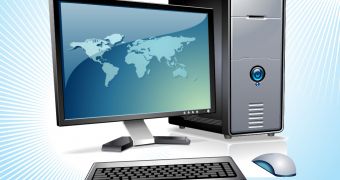Sales of tablets and smartphones have skyrocketed in the last couple of years, leading to a somewhat shocking decline of the PC market, despite all new product launches and efforts made by Microsoft and its partners to slow down this drop.
Microsoft, who has been pushing for touch-capable devices lately, says that the PC isn’t dead yet, even though it’s pretty clear that the traditional concept of such a device has evolved a lot.
Redmond itself has switched the focus from desktop computers to tablets and touchscreen notebooks with the launch of Windows 8, but says that people still turn to desktop computers for “precision movements with a mouse.”
Julie Larson-Green, the executive vice president, Devices and Studios at Microsoft, said during the UBS Global Technology Summit that desktop computers remain the essence of the productivity world, but tablets are quickly catching up.
“I think there will always be for a long time, for my lifetime, there will be desktop computers where people are doing precision movements with a mouse which are highly tuned towards productivity and typing, as well as maybe something on your wrist, or something on your head, or something in your pocket that you will want to interact and see your e-mails, hear notifications, get access to corporate data that you need to do your job, as well as interact with friends and family. I think we are very poised,” she pointed out.
At the same time, Julie Larson-Green admitted that some of the tablets that reached the market lately do come with great productivity features which at some level could replace the old desktop.
“I think tablets just open it up. It does replace some PCs, but it also opens up an opportunity for people as an additional device for them to go and use. Our phone is an additional device. And we're working on a world where we make it easy for you to have many different devices in your life,” she added.
Microsoft itself advertised the Surface tablet range as a productivity device, saying that it mixes the best of two different worlds, namely tablets and notebooks.
Surface sales have until now remained low, while Windows 8 barely reached an 8 percent market share, with the decline of the PC market cited as one of the main reasons for its poor early sales performance.

 14 DAY TRIAL //
14 DAY TRIAL //